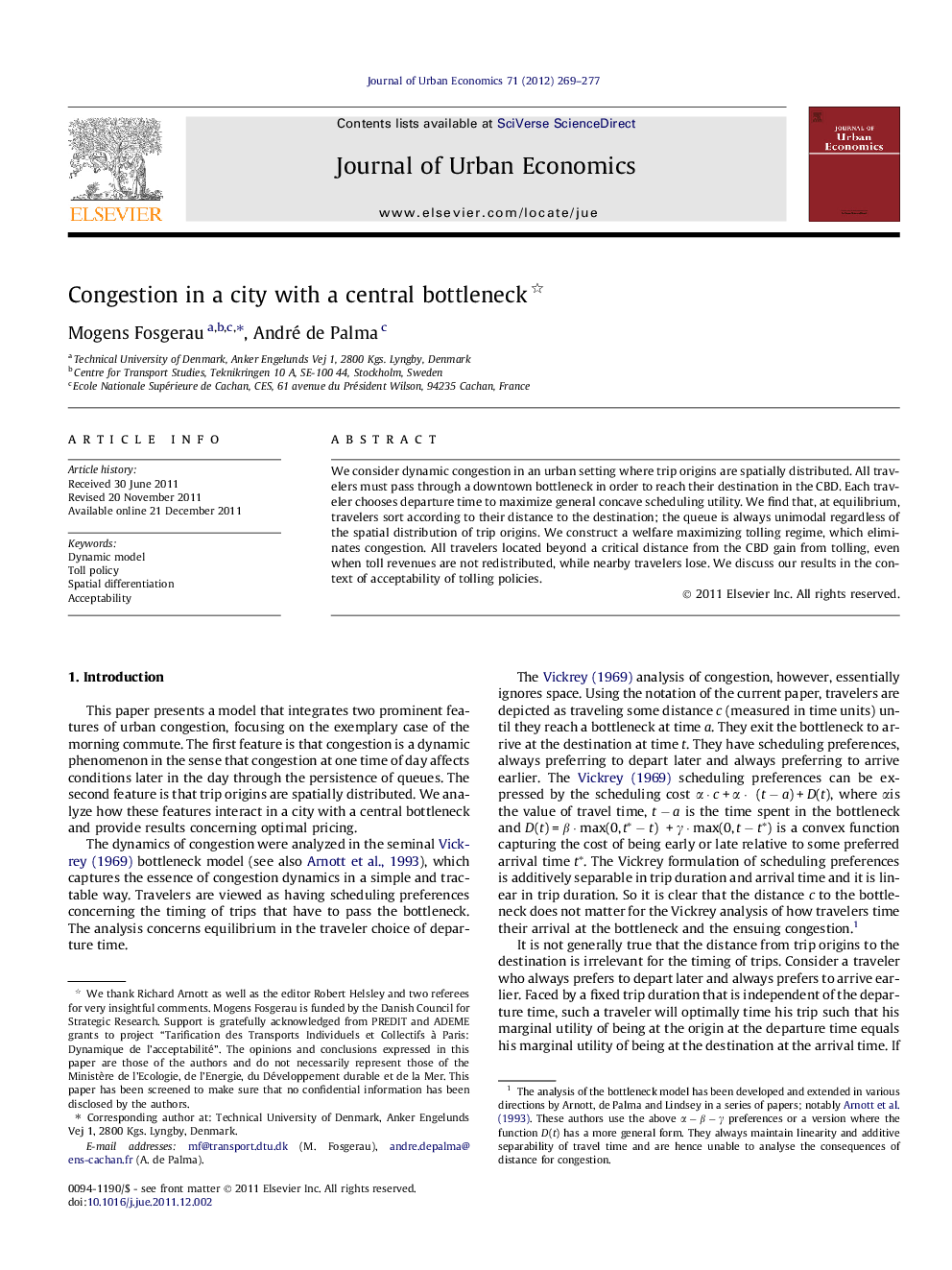| Article ID | Journal | Published Year | Pages | File Type |
|---|---|---|---|---|
| 970861 | Journal of Urban Economics | 2012 | 9 Pages |
We consider dynamic congestion in an urban setting where trip origins are spatially distributed. All travelers must pass through a downtown bottleneck in order to reach their destination in the CBD. Each traveler chooses departure time to maximize general concave scheduling utility. We find that, at equilibrium, travelers sort according to their distance to the destination; the queue is always unimodal regardless of the spatial distribution of trip origins. We construct a welfare maximizing tolling regime, which eliminates congestion. All travelers located beyond a critical distance from the CBD gain from tolling, even when toll revenues are not redistributed, while nearby travelers lose. We discuss our results in the context of acceptability of tolling policies.
